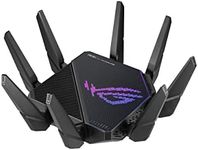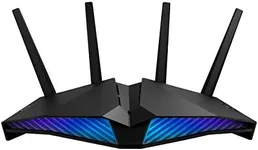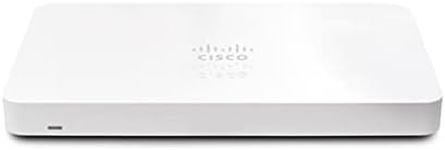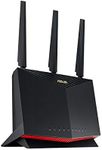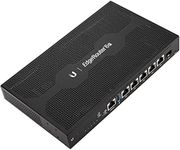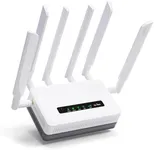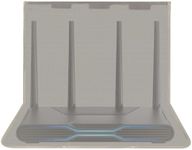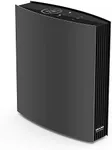Buying Guide for the Best Wired Routers
When choosing a wired router, it's important to consider your specific needs and the environment in which the router will be used. Wired routers are essential for providing stable and secure internet connections, especially in environments where wireless connections may be unreliable or insufficient. Understanding the key specifications will help you make an informed decision and ensure that the router you choose meets your requirements.Port SpeedPort speed refers to the maximum data transfer rate that each port on the router can handle. This is important because it determines how quickly data can be sent and received through the router. Port speeds are typically measured in megabits per second (Mbps) or gigabits per second (Gbps). For basic internet usage, a router with 100 Mbps ports may suffice. However, for high-speed internet plans or data-intensive activities like streaming and gaming, a router with 1 Gbps or higher port speeds is recommended. Choose a port speed that matches or exceeds your internet service plan to ensure optimal performance.
Number of PortsThe number of ports on a wired router indicates how many devices can be directly connected to it via Ethernet cables. This is important for ensuring that all your wired devices can be connected simultaneously. Routers typically come with 4 to 8 ports, but some models may offer more. If you have multiple devices such as computers, gaming consoles, and smart TVs that need a wired connection, opt for a router with more ports. Consider your current and future needs to avoid running out of available ports.
Quality of Service (QoS)Quality of Service (QoS) is a feature that allows you to prioritize certain types of network traffic over others. This is important for ensuring that critical applications, such as video conferencing or online gaming, receive the necessary bandwidth to function smoothly. QoS can help prevent lag and buffering by managing the available bandwidth more effectively. If you have specific applications that require consistent performance, look for a router with robust QoS settings that allow you to customize traffic prioritization according to your needs.
Security FeaturesSecurity features in a wired router help protect your network from unauthorized access and cyber threats. This is crucial for maintaining the privacy and integrity of your data. Common security features include firewalls, VPN support, and intrusion detection systems. Advanced security features may also offer parental controls and guest network options. If you handle sensitive information or have multiple users on your network, prioritize routers with comprehensive security features to safeguard your data and devices.
Management InterfaceThe management interface of a wired router refers to the software or web interface used to configure and manage the router's settings. This is important for ease of use and accessibility. A user-friendly interface can make it easier to set up the router, adjust settings, and monitor network performance. Some routers offer mobile apps for remote management, while others provide web-based interfaces. If you prefer a straightforward setup and ongoing management, look for a router with an intuitive and accessible management interface.
ThroughputThroughput refers to the actual amount of data that can be transmitted through the router over a given period. This is important for understanding the router's real-world performance, especially under heavy network load. Throughput is typically measured in Mbps or Gbps. Higher throughput values indicate better performance, which is essential for activities like streaming high-definition video, online gaming, and large file transfers. Consider your typical internet usage and choose a router with sufficient throughput to handle your demands without bottlenecks.


